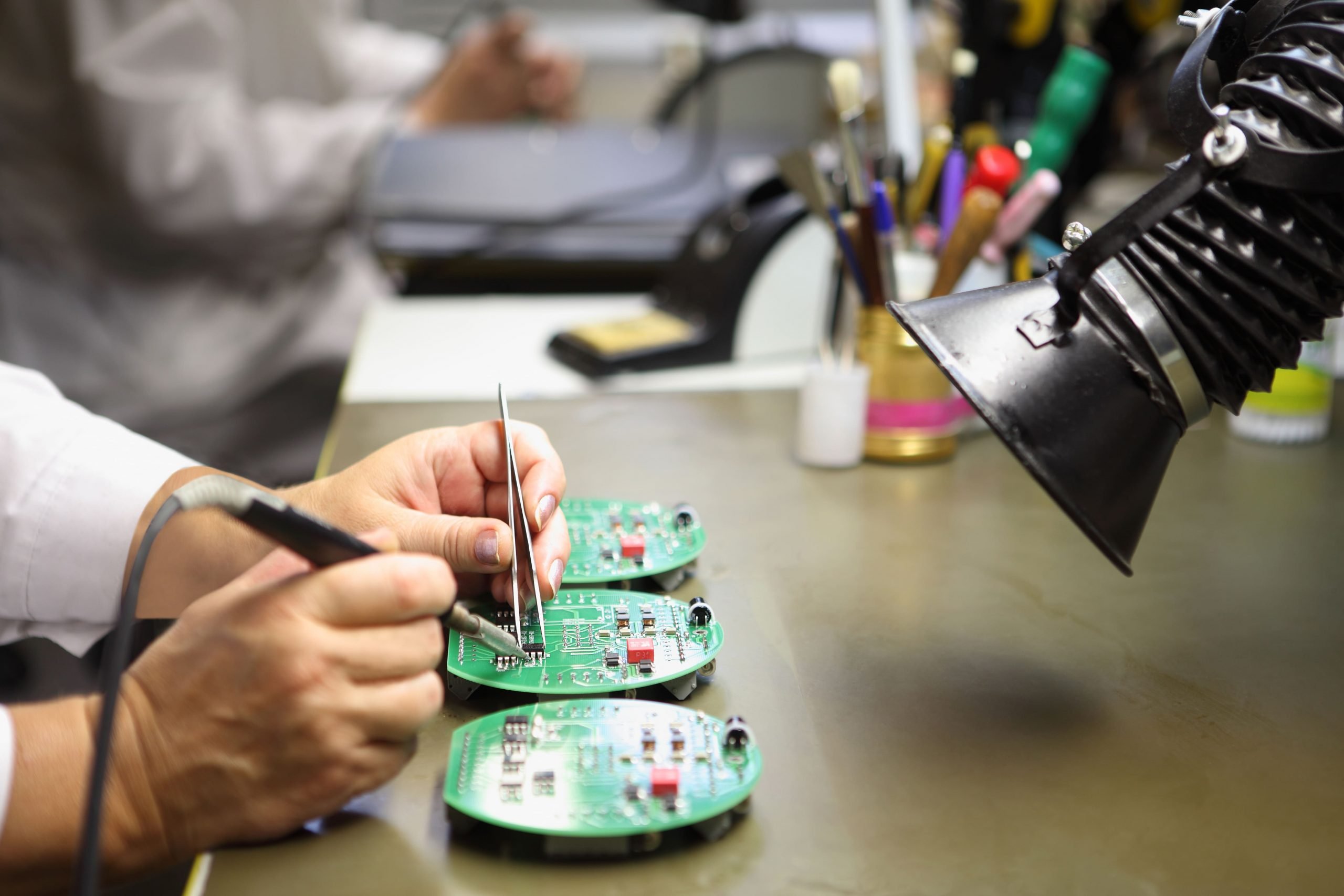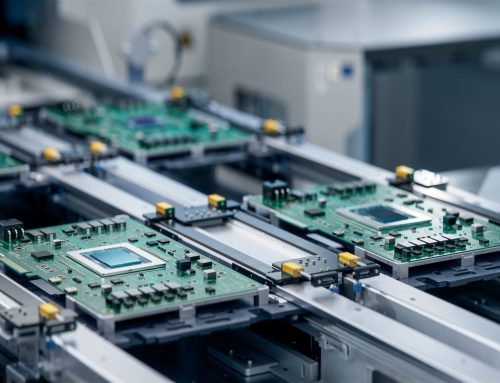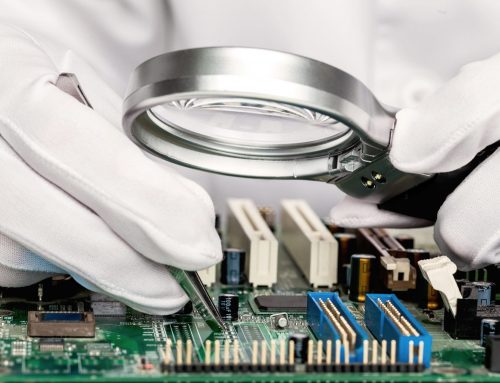Are you passionate about technology? Eager to make practical improvements to the world around you? Ready to embrace a new challenge and develop transferable skills?
You might want to consider a career in electronics manufacturing.
Whether you’re just starting your journey in electronics or thinking about changing direction within the industry, there are endless opportunities for development and success in this exciting sector.
Talented electronics professionals are always in demand. And right now, the electronic manufacturing services industry is adapting to global pressures — from supply-chain changes to rising demand for connected devices. That means employers are hiring people who can learn quickly and solve problems on the production line.
Intrigued? Here are five reasons why a career in electronics manufacturing might be a great fit for you if…
1. You look for high salaries
Manufacturing roles, including entry-level positions, typically offer strong starting salaries and room to move up.
Electronics manufacturers are always willing to invest in experienced professionals — especially as labour shortages threaten to slow down productivity and growth.
As the requirements for producing modern electronics become increasingly complex, the lack of highly skilled engineers and technicians is driving companies to improve their salary and benefits packages to ensure they hold onto their existing staff and attract talent from elsewhere.
And it is not just the more experienced individuals that stand to gain; the average manufacturing wage is 8% higher than the UK average, indicating that jobs in this sector are well paid regardless of seniority — making this an equally excellent career path for recent graduates and entry-level candidates.
2. You seek variety in your work
Careers in electronics are far from dull. Electronics manufacturers must innovate constantly to keep pace with the demand for next-generation devices, meaning this industry is fast-paced and challenging — perfect for anyone who wants to work at the leading edge of the digital revolution.
Once you get your foot in the door, there are plenty of manufacturing roles to explore. You can move between printed circuit board (PCB) assembly, quality control, testing, design support and more, meaning your day-to-day work can stay interesting.
Plus, given the speed of change within this sector, you will likely be involved in a range of projects throughout your career — and possibly even get to work in different global locations!
3. You aim for job security
If you’re looking for long-term career prospects, a job in electronics can undoubtedly deliver.
Thanks to the ever-growing requirement for advanced devices and components across industries like healthcare, automotive and consumer electronics, the electronics manufacturing industry can offer stable employment to anyone willing to keep developing their knowledge and skills.
4. You’re keen to upskill
Over half (55%) of manufacturers are experiencing shortages in advanced manufacturing skills. And yet, these capabilities will be crucial to the future of our tech-first society and ensuring all electronics products meet expectations for accuracy, performance and quality.
As a result, forward-thinking electronics manufacturers champion continuous learning — investing in workforce education to keep pace with new technologies and processes.
These circumstances offer exciting possibilities for electronics manufacturing professionals at every level. With the proper training and support, nothing is stopping you from testing out different disciplines and expanding your skillset across multiple applications.
5. You want to make a difference
Electronics touch almost everything we use: medical devices, cars, smart homes, industrial equipment and the phones in our pockets.
So, no matter what area of electronics development you choose to work in, becoming part of this industry places you at the forefront of technological innovation — with no limits to the level of creativity and critical thinking you can bring to the table.
Most importantly, you can take pride in actively solving problems and creating tangible solutions that impact the world around you.
How you can get into electronics manufacturing: routes and training
There isn’t one single path into this career. People enter from college courses, apprenticeships or via employer-led training. Key options include:
- College/FE courses in electronics or engineering — great for foundations in circuit theory and hands-on skills.
- Short courses and industry training — specialist courses like IPC’s Electronics Assembly for Engineers (EAE) are designed to give practical production and assembly skills that employers value.
- Apprenticeships — combine paid work with structured learning and are an excellent route for those who want to earn while they learn.
Many manufacturers partner with colleges and run in-house programmes to make sure entry-level staff can contribute quickly. Programmes like EAE give practical assembly understanding and are often recognised by employers in the electronic manufacturing services industry. That means you’re not just learning theory — you’re learning the tasks you’ll be paid to do.
Apprenticeships are especially valuable because they place you inside an active manufacturing company from day one — you’re paid, you build a CV, and you get taught exactly what the employer needs. Employers in the sector are increasingly using apprenticeships to tackle skills shortages and build loyalty. If you want hands-on learning and a direct path into employment, this is often the fastest route.
Typical electronics manufacturing jobs you could start in
- Production operator/assemblers (PCB assembly, cable harnessing)
- Test technician/quality control assistants
- Process support roles (line setup, materials handling)
- Junior engineering or test roles (for graduates or those with specialist training
These roles exist at startups and at long-established electronics manufacturing companies alike — so you can choose an environment that suits you.
Skills to focus on (what to study/practice)
- Basic electronics (voltage, current, soldering skills)
- Hand tools and inspection techniques
- Understanding of quality systems and compliance on the line
- Problem-solving and clear communication — these are valued even in technical roles
Across electronics manufacturing companies, the most sought-after traits aren’t just certificates — they include curiosity, reliability, basic electrical knowledge, good manual dexterity and the willingness to learn on the job.
Many manufacturers also invest in staff development (courses, mentoring, on-the-job upskilling), so showing that you’re keen to learn and adaptable will take you a long way.
Ready to take the next step at an electronics manufacturing company?
If you’re looking for an apprenticeship or thinking about switching careers, a role in the electronics manufacturing services industry could offer stability, good pay and the chance to build real, hands-on tech skills — plus a clear path from training into work.
Here’s a quick roadmap to getting started:
- Decide whether you want a classroom-first route (college) or an earn-while-you-learn route (apprenticeship).
- Get basic qualifications or short courses in electronics and health and safety.
- Apply to roles at electronics manufacturing companies or to apprenticeship schemes. Highlight hands-on experience (projects, college labs or DIY electronics).
- Once employed, take advantage of in-house training; many employers will support further study.
EC Electronics is constantly growing, with manufacturing and logistics facilities across the UK, the Netherlands and Romania that provide everything from electronic design and product realisation to PCB assembly, cable assembly, overmoulding services and electronics box build.
Through our involvement in local schools and colleges and training initiatives like the EAE course, we hope to encourage more budding manufacturing professionals to join us whilst also supporting our existing staff to fulfil their potential.
We’re proud to have several long-standing employees within our network and look forward to leading a more diverse team of enthusiastic individuals to success in the coming years.
If this sounds like you, we’d love to hear from you! Contact us today for more information about EC Electronics or visit our careers page for current vacancies and application details.
FAQs
Is electronics manufacturing just for engineers?
No — the sector needs operators, technicians, test engineers, planners and support staff. Engineering provides paths into higher-level design work, but many fulfilling careers are on the production and quality side.
Will I be trained in electronics manufacturing?
Yes. Many electronics manufacturers put training and continuous learning at the heart of recruitment because technology changes quickly and new skills are always in demand.
Got more electronics manufacturing questions?
See our electronics manufacturing FAQs to learn more about the industry.









